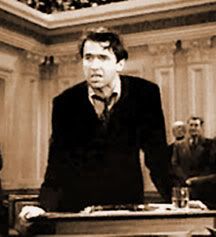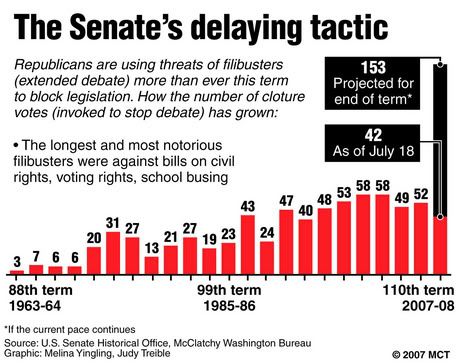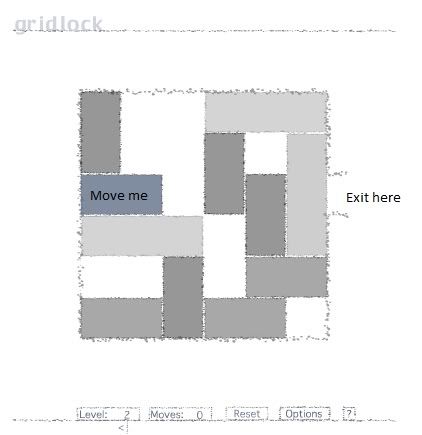grid·lock
noun
1. A traffic jam in which no vehicular movement is possible, especially one caused by the blockage of key intersections within a grid of streets.
2. A complete lack of movement or progress resulting in a backup or stagnation:
"the political gridlock that prevented ... the President and Congress from moving expeditiously to cut the budget"
gridlock - Chiefly US
noun
1. (Engineering / Automotive Engineering) obstruction of urban traffic caused by queues of vehicles forming across junctions and causing further queues to form in the intersecting streets
2. a point in a dispute at which no agreement can be reached; deadlock political gridlock
verb
- to block or obstruct (an area)
http://www.thefreedictionary.com/...

Gridlock
Definition: traffic jam
Synonyms: barrier, blockage, bottleneck, clog, congestion, impasse, logjam, obstacle, stoppage
Deadlock
Definition: stalemate, impasse
Synonyms: Catch-22, cessation, checkmate, corner, dead end, dead heat, dilemma, draw, full stop, gridlock
Hindrance
Definition: obstruction, difficulty
Synonyms: Catch-22, albatross, baggage, ball and chain, bar, barrier, catch, check, clog, crimp, cumbrance, deterrent, drag, drawback, encumbrance, excess baggage, foot dragging, glitch, gridlock
http://thesaurus.reference.com/...

Filibuster
Informal term for any attempt to block or delay Senate action on a bill or other matter by debating it at length, by offering numerous procedural motions, or by any other delaying or obstructive actions.
http://www.senate.gov/...
McClatchy, 7/20/2007
Senate Republicans Are Threatening Filibusters to Block More Legislation than Ever Before. "This year Senate Republicans are threatening filibusters to block more legislation than ever before, a pattern that's rooted in — and could increase — the pettiness and dysfunction in Congress.

http://democrats.senate.gov/...
Fili-Busted by Detroit Mark, 2/15/2010, Mark has more recent charts on these Filibuster Trends.
http://www.dailykos.com/...
End the filibuster in Senate; it has led to minority rule
by Bill Press: 2/1/2010
Until recent years, the filibuster was the exception, not the rule, designed to allow any senator to stop a vote on pending legislation by debating it as long as he wanted. There were only two conditions. The objecting senator had to continue speaking from the podium, without interruption, for the duration of the filibuster - or until 67 senators rose up to stop it: a move called cloture. And the Senate could conduct no other business while the filibuster was under way.
[...] New rules made the filibuster easier to use, but more open to abuse.
[...] And in 1975, the Senate voted to lower the required number of votes needed to end a filibuster from 67 to 60. Ever since then, use of the filibuster has grown steadily from an average once a year in the '50s, to more than 55 a year in the '90s. In 2007, the Republican minority invoked the filibuster 112 times, double the number called by Democrats when they were in the minority. In 2008, Republicans upped its use to 139 times.
http://readingeagle.com/...
Can't get enough of this Gridlock trend, that's all the rage?
Well you haven't known Gridlock, until you've tried to break the log-jam, and gotten nowhere:
Gridlock: the Addictive Online game

Instructions: CLICK AND DRAG pieces to move them. Pieces can only be moved forward and backward. Get the blue piece out the exit.
http://www.addictinggames.com/...
If only breaking the Ice-jam in the Senate, were this "easy"!
But I suppose our Senators like this Catch-22 situation though -- probably gives them "Job Security", without really haven't to get anything done -- So What's NOT to Like? (from their perspectives)
Except for maybe those record low Job Approval ratings?
If ONLY We ALL could get paid So Much -- for Doing SO Little!


